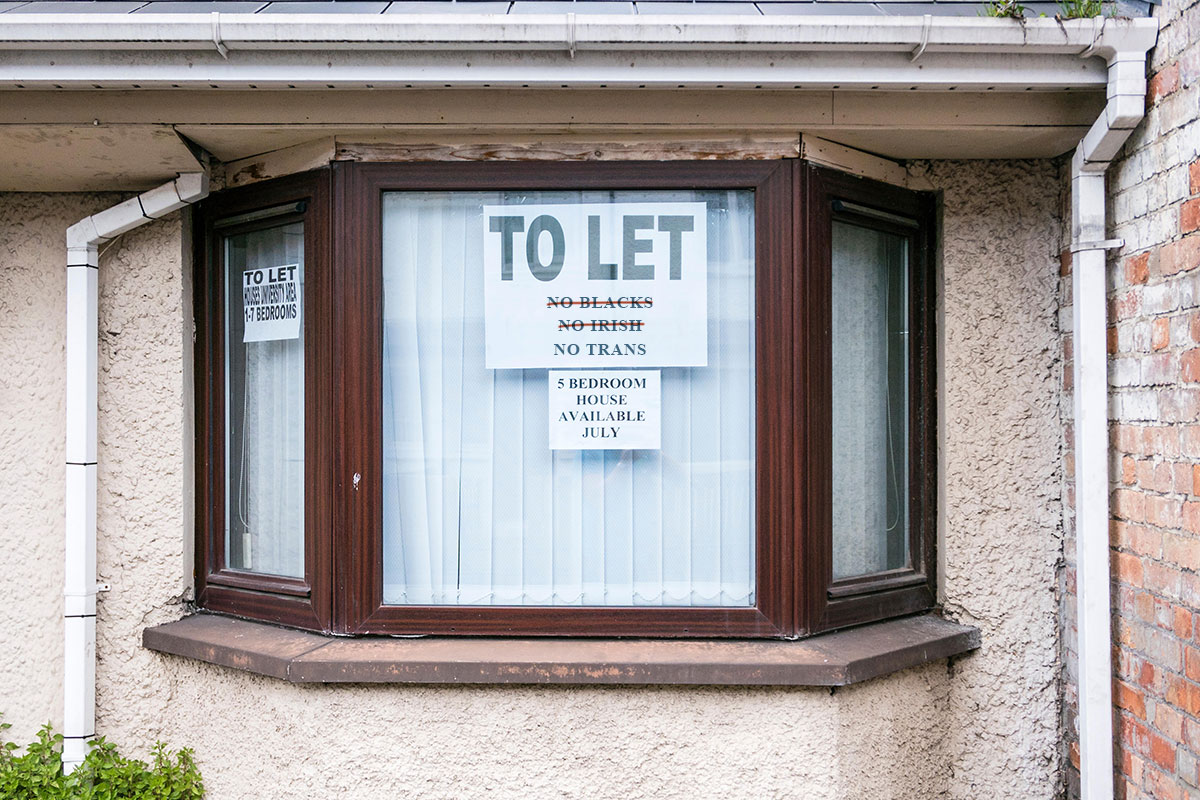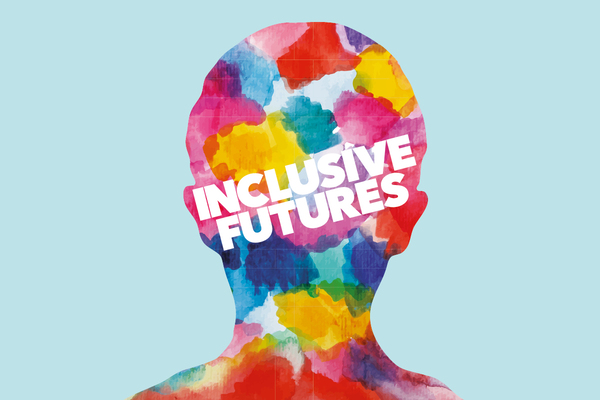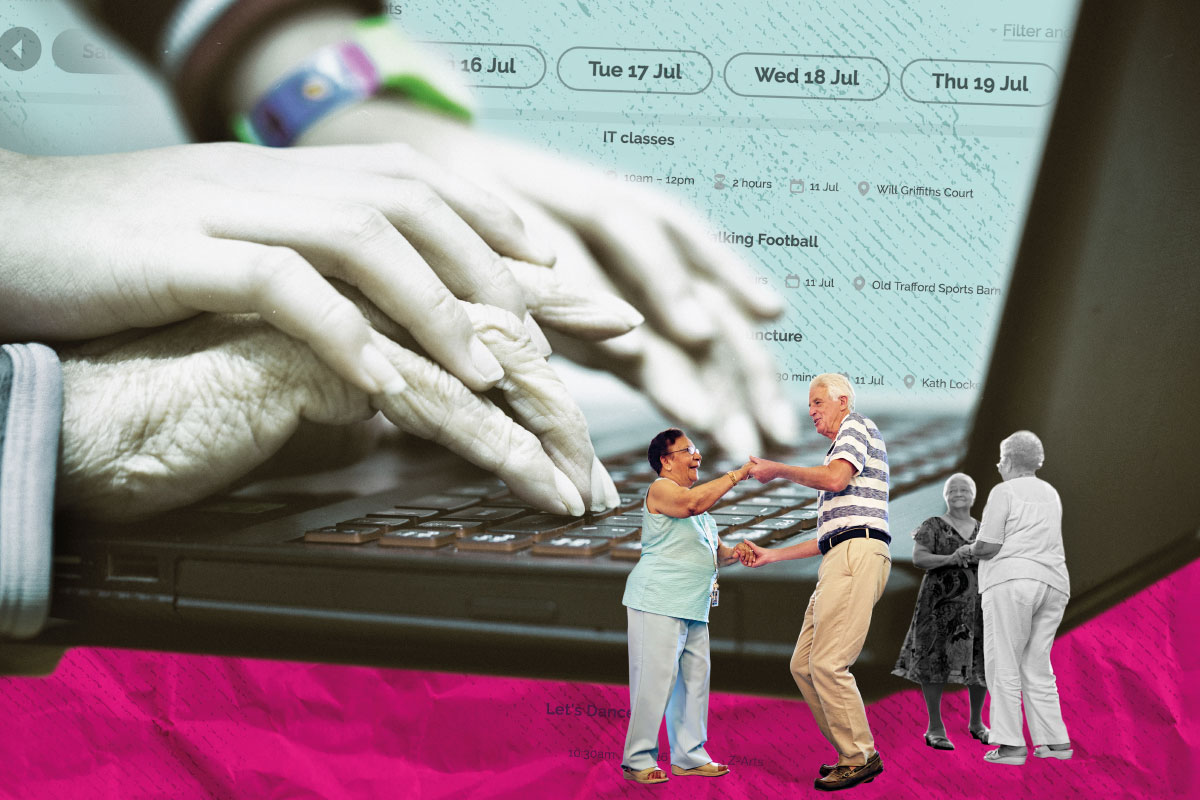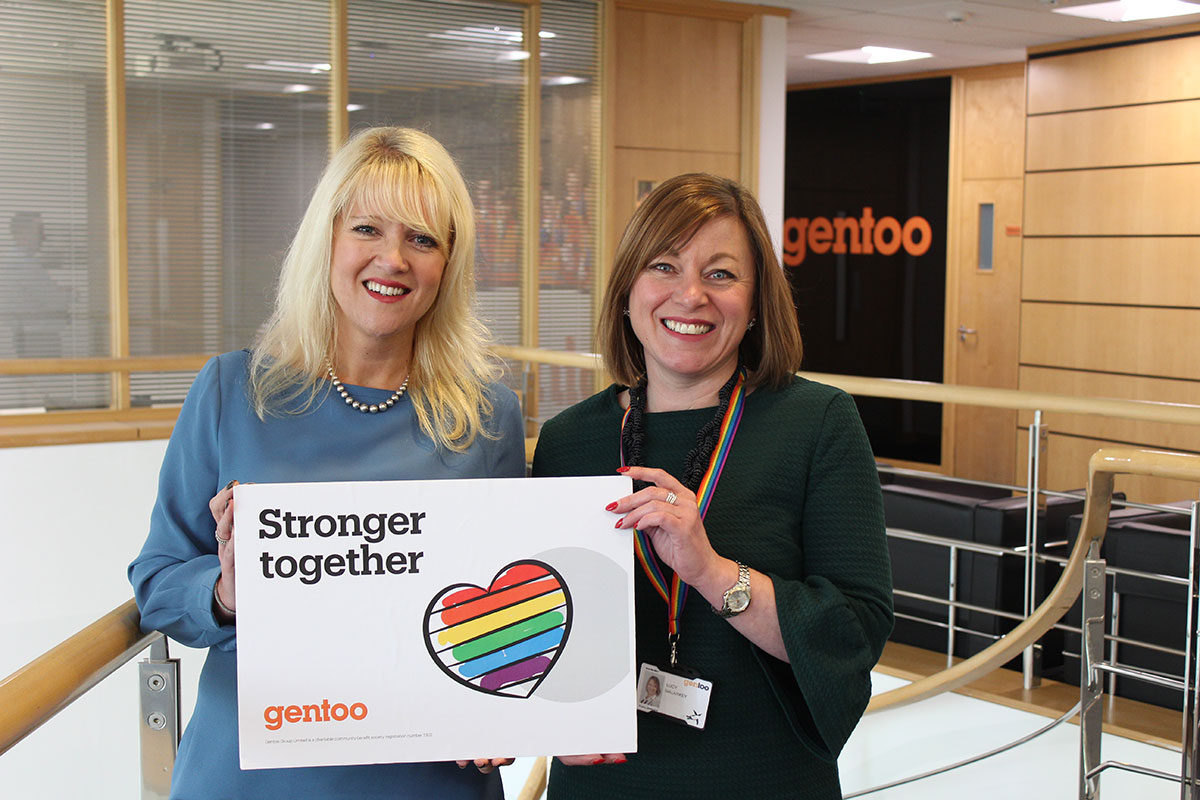You are viewing 1 of your 1 free articles
How to become a trans-inclusive landlord
Trans people can face discrimination when it comes to housing. Gentoo, however, has been recognised as trans inclusive. Jane Fae visits Sunderland to find out what the landlord has been doing – and why. Pictures by Alamy and Gentoo
Back in 2006, Lucy Malarkey was doing a survey of Gentoo’s tenants, and decided to add a question about sexual orientation. This was the beginning of a journey for the Sunderland housing association, that culminated this year in becoming the top-ranked housing association on charity Stonewall’s LGBT top employers list. Gentoo also made it onto the charity’s list for the top trans-inclusive employers.
Inside Housing has come to meet Ms Malarkey, deputy director (operations) at the 29,800-home landlord, to find out more about its LGBT inclusion efforts, and particularly its work on trans inclusion among staff and tenants.
This is particularly relevant following last week’s publication of a government survey revealing that 40% of LGBT people had experienced hate crimes.
Gentoo’s headquarters are bright and open, and a little bit corporate. Ms Malarkey is the bundle of energy that has been the driving force behind Gentoo’s diversity efforts.
Of course this goes well beyond LGBT inclusion – much of Gentoo’s work is focused on disability and age, as the area has an ageing population.
Work on LGBT diversity, though, focuses on “tenants, staff and the wider community”, Ms Malarkey says.
Some fast learning followed the decision to add that question to a tenant survey. She recalls: “There had been no conversations within the organisation about these subjects. No training. So a lot of angry phone calls from customers landed on my desk.
“There was also the incredible finding that 16% of respondents identified as ‘bi’. That reflected a wider misapprehension: that being bi meant having had a couple of partners – or even having sex two or more times a year!”
"If staff don’t understand the issues, how can they communicate with customers?"
Getting that survey wrong led to a lot of hard thinking about how to get it right. A two-pronged strategy emerged.
Internally, there was a focus on staff training. Because if staff don’t understand the issues, how can they communicate with customers? At the same time, diversity issues were covered in customer newsletters.
There was more survey work, including on sexual orientation and other protected characteristics.
Gentoo published a diversity manifesto. The landlord also collected real-life stories and experiences from individual managers, which it shared through YouTube. Some of these were raw, difficult. One manager spoke about “Paki-bashing” directed at him. Another employee spoke of her reaction to Stonewall’s ‘Some People Are Gay. Get Over It!’ campaign.
“Don’t ask me to get over it,” she commented. “My husband just left me for a man!”
The bottom line: Ms Malarkey says Gentoo will have the conversation, no matter how hard – and in order to build acceptance.
While Gentoo has few numbers to measure its success, Ms Malarkey argues the approach seems to be delivering real change. There are copious handouts and briefings for staff on trans issues. The “trans customer journey” has been mapped, helping staff understand how anti-social behaviour against trans individuals operates. For example, putting a trans tenant on the ground floor of a block of flats might make them a more accessible target.
“The Gentoo trans group provided a place where I could get together with other individuals facing similar issues.”
Gentoo made small changes: its computer system now allows tenants to choose the gender non-specific pronoun Mx, as well as Miss, Ms or Mr.
There are bigger things: for example, when working with tenants Gentoo tries to ensure continuity of identity without being over-intrusive. So there has been a focus on moving key historical documents – which might have that person’s old details or name (trans people usually refer to this as their dead name) – over to new records without outing the fact that the individual is trans and/or has transitioned.
Louise Bassett and Lucy Malarkey
Co-ordination between the housing association’s legal and IT departments had historically led to the “stop/start tenancy” – because the easy way to do a name change is just to reissue documents, which risked residents losing their tenancy rights and security. So in September Gentoo devised a new way to manage the process.
Gentoo also set up and now supports a group for trans people, which emerged almost serendipitously through reports by tenants on harassment.
This led to the idea of setting up a group that would help get trans people together.
Gentoo’s role here is very much light touch. It carried out a tenant survey to find out if there was an appetite for a group. There was, so the landlord provided a space, and then used survey results to identify people who might benefit from coming along.
Participation fluctuates from meeting to meeting, with a maximum of 10. There have been teething troubles, particularly around finding a venue.
Renting while trans
Caroline (not her real name) lives in a private rented flat in Stevenage: neither up-market nor especially under pressure. She had lived in the area for almost 20 years without incident.
Until November 2017. Then she fell out with a business partner and terminated their business relationship. After that, the attacks began. She assumes “word got round” that she is “trans”, because it is not obvious.
Caroline rejects the term trans, explaining that she is now in her 40s and transitioned in her late teens. So she has lived as a woman for more than half her lifetime. Still, she is now totting up the police crime references: five since January 2018. She has had eggs thrown at her in the street. One evening, walking home, a random man walked up to her and punched her in the face. Her assailant has not been identified.
There have, too, been eggs thrown at where she lives. Not as disturbing as the trans woman in Leeds I once interviewed who regularly received bricks through her window – or the one in Northern Ireland who lived in fear of petrol being poured through her letterbox. Still, it is disturbing.
As has been the response. Caroline’s landlord does not want to know. When she raised the matter he decided to terminate her tenancy. Because he does not need the hassle. Nor does Caroline – but, from her landlord’s point of view, that’s her problem.
Caroline has discussed rehousing with her local council, but is not optimistic. She is terrified of being relocated to a place that will be dangerous for her.
Above all, she needs somewhere safe, or at least safer: where the haters can’t get to her, or if they do, where her landlord will help to protect her.
Sadly, for all too many trans people, that is not a given in the UK today.
But with Gentoo’s support, it has become a safe place for trans people to gather, and share experiences – and the group has now been handed over to Sunderland Pride to shepherd and expanded beyond the landlord’s own tenants.
Of course the measure of how successful Gentoo’s policies have been can’t just be taken from checking what policies and procedures are in place. Alannah, a trans woman who has been transitioning for several years now, is one of the association’s tenants. She talks of enduring some anti-trans sentiment through her work as a bus driver. But regular passengers “get it” and that has faded.
Key issues facing trans people in social housing
Tenant hostility
Trans people may be subject to abuse and anti-social behaviour. Social landlords can put in place easy reporting procedures. They can also manage their estate so trans people are not placed in exposed positions.
Staff interaction
This must be respectful and mindful of specific issues, such as misgendering and deadnaming (the use of a pre-transition name). Staff familiarity with such issues will also help them manage potentially embarrassing conversations.
IT and legal departments need to be aligned to best practice
Trans people are often seeking to dissociate from previous gender and identity information within systems. This is anathema to many IT practitioners, who like continuity within systems. This also challenges conventional legal practice.
Isolation
Trans people often find themselves very alone, as former friend and family networks reject them and they fear being ‘outed’ in new places. Social landlords can create the conditions in which community support thrives.
She and her family needed more space. So in 2014 they moved to a Gentoo property from a private rental in nearby Roker. She was delighted to find herself in a diverse and accepting community.
“My new neighbours have been fine. Then I found out about the Gentoo trans group via Sunderland Well-being, a counselling service that I attend,” she says. “It provided a place where I could get together with other individuals facing similar issues – and the great thing is that the group will go wherever it needs to in the process. And it was a space open to partners, including my own.”
Inclusive Futures
Inside Housing’s Inclusive Futures campaign aims to promote and celebrate diversity and inclusion.
We are pledging to publish diversity audits of our own coverage.
We are also committed to proactively promoting positive role models.
We will do this through the pages of Inside Housing. But we will also seek to support other publications and events organisations to be more inclusive.
Our Inclusive Futures Bureau will provide a database of speakers and commentators from all backgrounds, for use by all media organisations.
We are also challenging readers to take five clear steps to promote diversity, informed by the Chartered Institute of Housing’s diversity commission and the Leadership 2025 project.
THE INCLUSIVE FUTURES CHALLENGE
Inside Housing calls on organisations to sign up to an inclusive future by taking five steps:
Prioritise diversity and inclusion at the top: commitment and persistence from chief executives, directors and chairs in setting goals and monitoring progress.
Collect data on the diversity of your board, leadership and total workforce and publish annually with your annual report. Consider gender, ethnicity, disability, sexuality, age, and representation of tenants on the board.
Set aspirational targets for recruitment to the executive team, board and committees from under-represented groups.
Challenge recruiting staff and agencies to ensure that all shortlists include candidates from under-represented groups.
Make diversity and inclusion a core theme in your talent management strategy to ensure you support people from under-represented groups to progress their careers.
INSIDE HOUSING’S PLEDGES
We will take proactive steps to promote positive role models from under-represented groups and provide information to support change.
We pledge to:
Publish diversity audits: We will audit the diversity of the commentators we feature. We will formalise this process and publish the results for future audits twice a year.
Promote role models: We will work to highlight leading lights from specific under-represented groups, starting in early 2018 with our new BME Leaders List.
Launch Inclusive Futures Bureau: We will work with the sector to compile a database of speakers, commentators and experts from under-represented groups. The bureau will be available to events organisers, media outlets and publications to support them to better represent the talent in the sector.
Take forward the Women in Housing Awards: Inside Housing has taken on these successful awards and will work to grow and develop them.
Convene Inclusive Futures Summit: Our new high-level event will support organisations to develop and implement strategies to become more diverse and inclusive.














